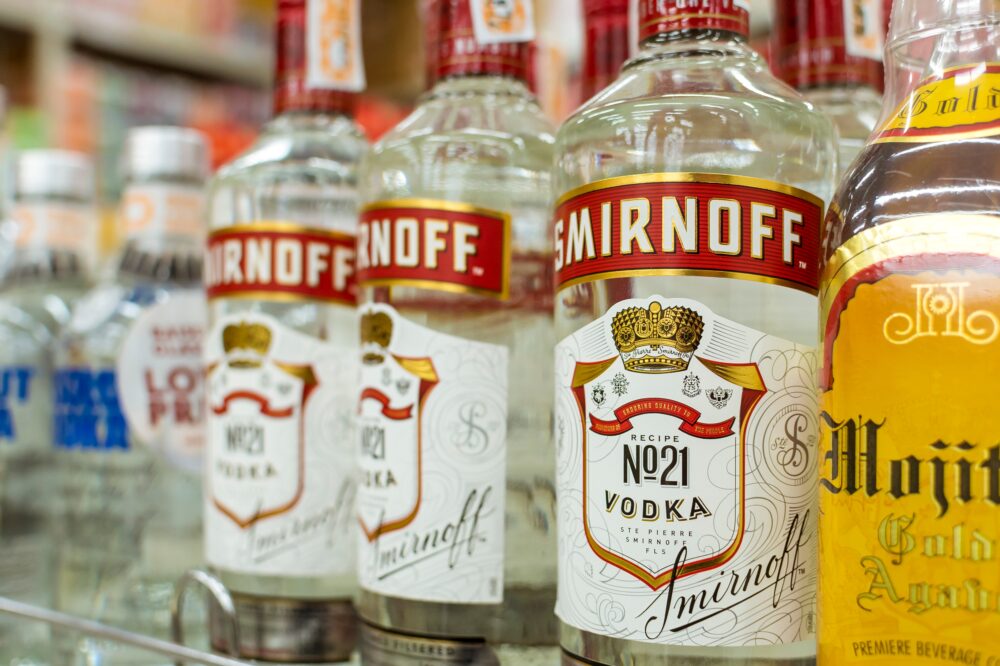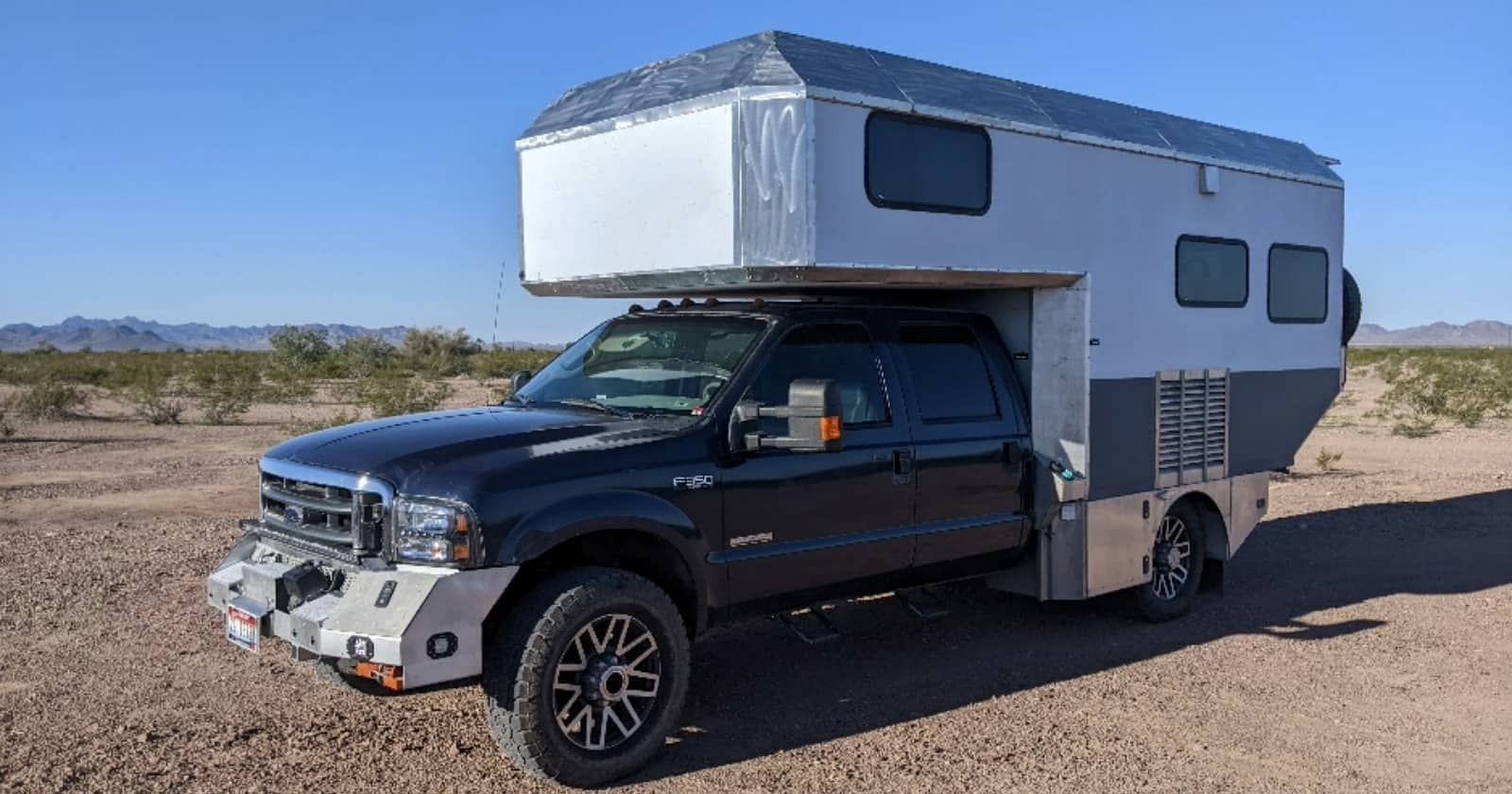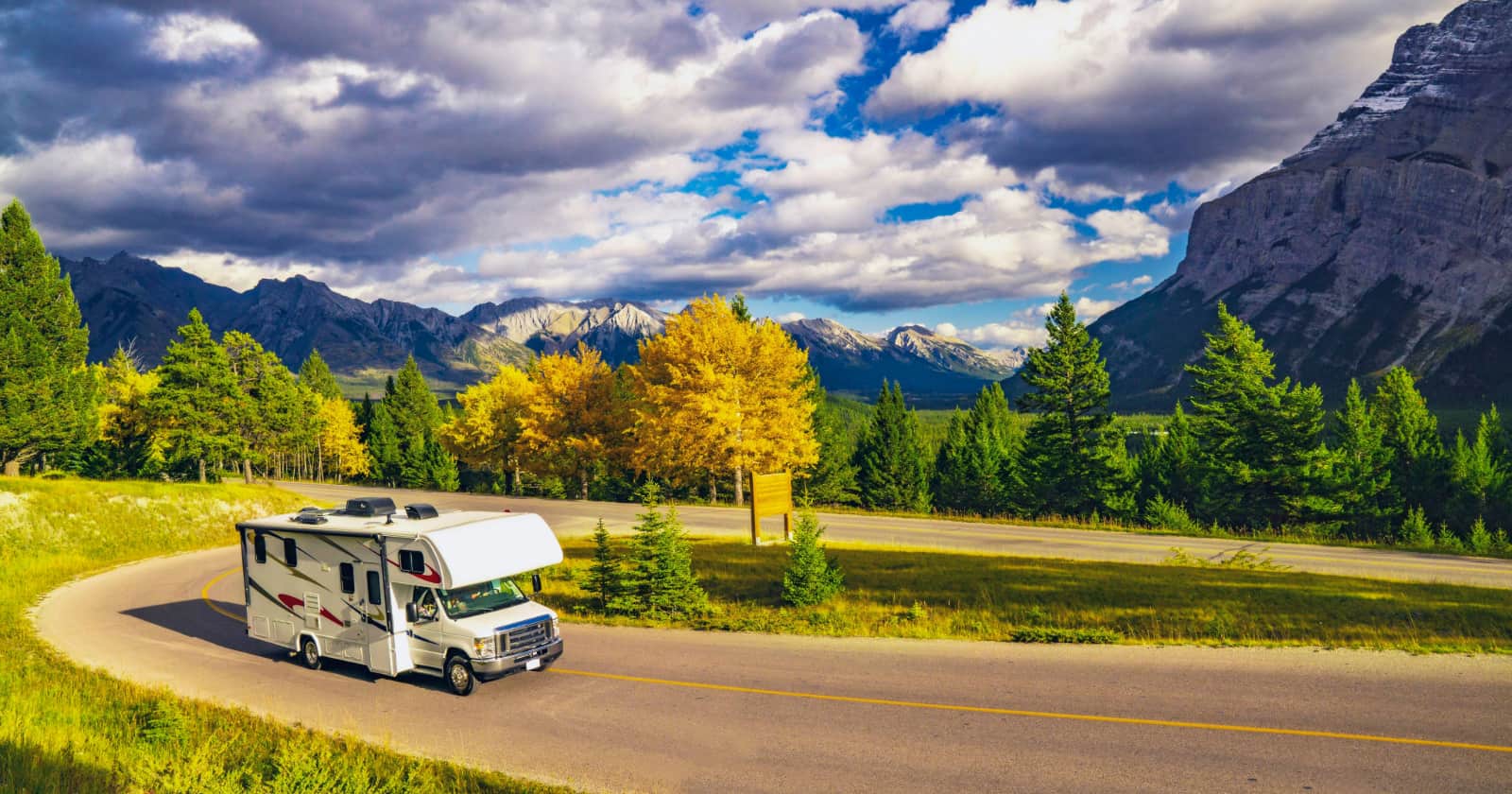
Why You Shouldn’t Use Vodka To Winterize An RV
Winterizing your RV is a necessary ritual if you want to protect your investment through the freezing months. For many, the standard winterization process involves the use of RV antifreeze, a pink-colored, non-toxic solution specifically designed to prevent water lines from freezing. However, in recent times, some RV owners have suggested using vodka as an alternative to RV antifreeze.
This suggestion has raised eyebrows and a fair number of questions. Is it a good idea? Is it effective? And is it safe? In this article, we’ll explore whether or not vodka can be a viable alternative for winterizing an RV.
The chemistry behind antifreeze
Before diving into vodka as a potential substitute, it’s essential to understand the science behind antifreeze. Ethylene glycol and propylene glycol are common components of automotive and RV antifreeze solutions. These substances work by lowering the freezing point of water, thereby preventing the formation of ice within your water lines, holding tanks, and other plumbing fixtures. It is crucial to use a non-toxic antifreeze specifically designed for RVs, as the toxic versions used in car radiators are not safe for potable water systems.
Why vodka?
The idea of using vodka originates from its alcohol content. Ethanol, the type of alcohol found in alcoholic beverages like vodka, also has the ability to lower the freezing point of water. Vodka typically has an alcohol concentration of around 40%, making it less effective than the 100% ethylene or propylene glycol found in specialized antifreeze formulas. However, it is non-toxic and might be thought of as a more readily available alternative in a pinch.
Efficacy: Does it work?
Technically speaking, vodka does have antifreeze properties. The ethanol in vodka would, theoretically, lower the freezing point of water and make it more difficult for the liquid to freeze. However, there are some caveats:
- Dilution: When you introduce vodka into the RV’s water system, it will mix with any residual water, reducing its alcohol concentration and, consequently, its efficacy as an antifreeze.
- Cost: High concentrations of vodka would be required to adequately lower the freezing point of water, making it a costly affair.
- Uneven distribution: Properly mixing vodka with water within the confines of an RV’s complex plumbing system is challenging, potentially leaving some areas unprotected.
Safety concerns
While vodka is non-toxic, using it as an antifreeze substitute presents its own set of safety concerns:
- Flammability: Ethanol is flammable, posing a potential risk if exposed to open flames or electrical systems.
- Corrosion: The acidic nature of vodka might contribute to corrosion in your pipes and tanks over time.
- Residual odor and taste: Vodka may leave a residual smell or taste in the water system, which would require thorough flushing come springtime.
- Regulatory issues: Storing large amounts of vodka in an RV might raise eyebrows and could even lead to legal complications depending on local laws and ordinances.
Expert opinions
Most RV professionals and maintenance experts strongly recommend against using vodka or any other DIY solution as an antifreeze substitute.
Specialized RV antifreeze has been rigorously tested to be safe, effective, and non-corrosive for your vehicle’s water system. Vodka hasn’t undergone such testing and might result in long-term damage or safety issues that could void your RV’s warranty.
The bottom line
While the idea of using vodka to winterize an RV might seem innovative and perhaps cost-saving, the potential downsides far outweigh the benefits. Efficacy, safety, and potential legal complications make this a risky venture at best. When it comes to protecting your investment, sticking to tried-and-true methods, such as non-toxic RV antifreeze, remains the wisest course of action.
Remember, winterizing your RV is not just about preventing water from freezing; it’s also about ensuring the longevity and performance of your vehicle. Taking shortcuts or using untested methods can lead to costly repairs and could even compromise your safety. Stick with industry-approved methods for the best results, and always consult your RV’s owner’s manual or a professional for the most accurate and personalized advice.
Track your RV maintenance
Make sure you keep track of all your RV maintenance and repairs with an online tool such as RV LIFE Maintenance. Not only can you keep all of your documents in one place, but you’ll also receive timely reminders when maintenance is due to help you avoid costly repairs and potentially serious accidents.




Don’t drink & drive your RV!
Looking for a alternative for a residential refrigerator ice maker. Removing the filter and blowing the lines out work for anyone?
Why waste good vodka?!
If you drain and blow out the water lines, why introduce any anti freeze, vodka or pink?
Growing up in a small community in Canada, my father told me about an RCMP that was stationed in our area using Moonshine in his Rad of the Police Car in the winter months instead of Antifreeze. Never froze
I’ve used vodka to winterize my RV water systems for years. It has worked for me. Not sure I’d use it where temps get below O degrees F, but where I live, rarely does it go below 20 degrees F. I just don’t buy the safety concerns listed. For starters, the way to do it is to blow out the lines with an air pump before you winterize, that way you don’t have a dilution problem. Flammability is not an issue. Take a lighter and try to light 80 proof vodka. It doesn’t light. Secondly, it’s not going to cause corrosion over a few winter months. If it was that acidic, you wouldn’t want to even drink it. 3rdly, as far as residual odor and taste, it is much less of a problem than the pink propylene glycol that takes multiple flushes to clear after a winter. And 4th, what kind of legal complications would be problematic from pumping perhaps a gallon of cheap vodka through your RV water system? Answer: none. Your post is non-scientific and based solely on conjecture and opinion. While vodka may not protect down to -20 degrees F, it will do the trick in many parts of the country, is not overly expensive, and easy to flush out. It also avoids the problem with propylene glycol that will turn any clear plastic opaque, like the screen filter in line to your pump. Propylene glycol can also cause certain rubber materials like gaskets to harden and crack.
With the cost of booze I can’t imagine using vodka for antifreeze.
I keep my eyes open for the “Pink Stuff” and can usually pick up a couple gallons at less than $3 a gal. After I drain and blowout my lines I use the suction side of the RV water pump and then open each faucet till I get pink. In my 24′ Class-C I need only 1-1/4 Gal.
Geeesh. Use vodka to winterize yourself
Hmmmmm…………… Can’t wait to winterize my RV. Actually may start winterizing it every weekend. You never know, those cold nights can sneak up on you! Lol